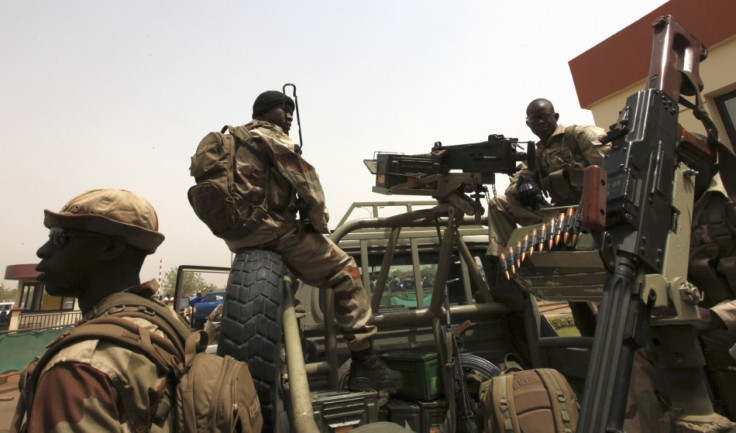West African States Warn Mali Junta Reserve Troops on Standby

Mali's neighbours have agreed to close their borders as part of a set of immediate sanctions on the west African country following the military coup that toppled the government.
The 15-member community of the Economic Community of West African States (Ecowas) held a regional summit and announced that they had closed borders to trade and frozen Mali's access to bank accounts.
Alassane Ouattara, chairman of Ecowas and president of the Ivory Coast, said: "All the diplomatic, economic, financial and other measures will be applied from today and will remain in place until constitutional order is re-established."
The regional body also warned it would "activate" the region's reserve army, though it is unclear when or under whose mandate troops would be deployed.
"The situation in Mali is extremely serious, it is a blow to democracy and an attack on the territorial integrity of this country," Ouattara added.
Mali's access to the regional Central Bank of West African States (BCEAO), which manages the money supply in the region, will also be blocked and a travel ban has been imposed on members of the junta, whose assets have been frozen.
"We call on the armed groups to halt their advance towards the south," Ouattara said.
Ecowas has given soldiers of the newly formed National Committee for the Restoration of Democracy and State (CNRDR) until 9 April to step down.
Members of the junta reaffirmed that they are ready to consult with civilians over a transition of power, but said that although it had "taken note" of the sanctions from Ecowas, its priority remained the fight against the rebels in the country's northern desert region.
Coup leader Captain Amadou Sanogo said on state television: "The CNRDR would like to reiterate that the most important priority at the moment is Mali's territorial integrity."
The closure of Mali's borders will isolate the country and have an impact on its economy, especially when it is largely dependent on fuel imports and on neighbouring states for trade.
Mali shares its currency with seven other countries in the region and other members of the Central African Franc zone have threatened to block transfers to Mali's banks.
Instability Benefits Tuaregs and Islamists
The military junta said it they had staged a coup following the government's failure to stop the Tuaregs rebels following a two-month rebellion. Tensions between the central government and the Tuaregs date back to the late 1950s.
The rebels appear to benefit from the country's instability, as they have made rapid advances in the north over the past few days, seizing the key towns of Timbuktu, Gao and Kidal.
The Tuaregs separatists have also been joined by an Islamist group with links to al-Qaida.
People in the ancient trading post of Timbuktu said local Ansar Islamists, who helped the Tuaergs seize the town, have now imposed Sharia law.
In Gao, Islamists ransacked bars and hotels selling alcohol, according to witnesses. It was also reported that western clothing and music have been banned.
The UN Security Council is set to hold emergency meeting on the crisis in Mali.
© Copyright IBTimes 2025. All rights reserved.





















